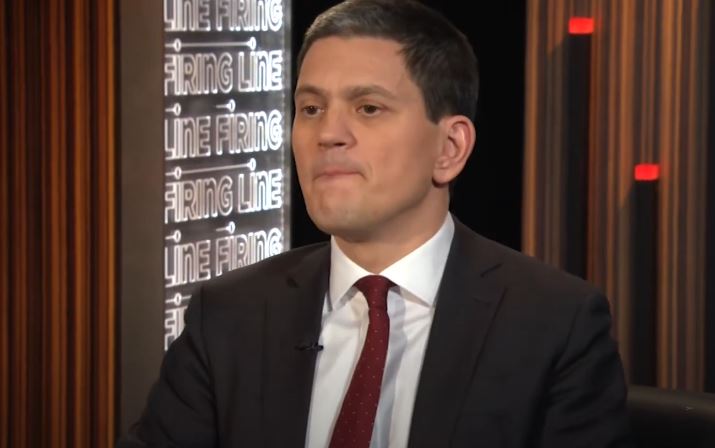Beyond just making headlines, David Miliband’s compensation as the head of the International Rescue Committee has sparked discussion. His total compensation in 2022 was over $1.25 million, which many people find hard to reconcile with a humanitarian nonprofit’s mission-driven goals. For someone who was once trusted with directing foreign policy at the highest levels of the British government, growth, fundraising, and institutional expansion now seem to have a greater influence on his financial earnings.
Miliband’s pay raises have been remarkably steady. The consistent increase has mirrored the expansion of the IRC itself, rising from $466,209 in 2012 to over $1.14 million ten years later. In less than a dozen years, Miliband led the charity from a $450 million budget to over $1.48 billion, making him a key player in what some see as a modernized aid strategy that combines corporate frameworks with nonprofit objectives.
| David Miliband – Bio, Career & Salary Snapshot | |
|---|---|
| Full Name | David Wright Miliband |
| Date of Birth | July 15, 1965 |
| Birthplace | London, England |
| Nationality | British |
| Current Role | President & CEO, International Rescue Committee |
| Tenure at IRC | Since September 2013 |
| 2022 Salary | $1,142,413 |
| 2024 Reported Compensation | $1,253,728 base + $150,000 bonus |
| Previous Role | UK Foreign Secretary (2007–2010) |
| Education | Oxford University; MIT (Kennedy Scholar) |
| Reference Link | David Miliband – Wikipedia |
Miliband was always going to be under close scrutiny because he was in charge of an organization that Albert Einstein had founded and that was supported by powerful governments and private donors. However, the figures have transformed important discussions into intensely personal annoyances. In light of the $50 million deficit the IRC is currently facing, the CEO‘s compensation has come to represent a larger problem: the allocation of resources in the humanitarian sector.
Given that their leader makes more than $3,200 a day and that staff reductions are in progress, some IRC employees have voiced their concerns. As one employee noted, that type of compensation is especially startling when cost-cutting measures are implemented and unpaid internships are still frequently offered for entry-level positions. The disparity seems too great for comfort from the standpoint of leadership optics.

British lawmakers have also voiced their opinions in recent days. Tom Tugendhat called the salary “outrageously large” and demanded that priorities be reevaluated in a government-funded organization. Since the UK government contributes over £30 million a year to the IRC’s funding, the backlash is not only emotional but also political.
Miliband has contributed to the IRC’s rise to prominence in humanitarian strategy during the last ten years. His leadership has been especially successful in fundraising by utilizing global influence, forming partnerships with donors, and managing intricate international crises. However, scale success does not always equate to cost-effectiveness.
Here’s a helpful analogy: managing a nonprofit organization that promotes humanitarian causes is more like navigating a lifeboat through rough seas than it is like managing a Silicon Valley startup. Deliberate balance and strong leadership are both necessary for effective navigation. In times of exceptional performance, high compensation might be justified, but only if it doesn’t detract from the ship’s performance.
In 2024, IRC leadership, to their credit, responded by agreeing to pay reductions. According to a spokesperson, the pay is set by an impartial compensation committee and compared to similar nonprofit organizations in the United States. They highlighted Miliband’s contribution to growing operations and impact. More people in refugee settlements and conflict areas are now reached by the charity than ever before.
However, detractors contend that internal equity shouldn’t be sacrificed for reach expansion. Miliband received bonuses totaling over $400,000 over the course of three tax returns. His predecessor’s annual salary was less than $400,000. For many, that difference is moral as well as mathematical.
This moment feels like a fork in the road for nonprofit leadership. Offering salaries comparable to those in the private sector to entice top talent is one way to further professionalize. In order to meet the expectations of donors and the community, the other one reverts to mission-centered modesty and emphasizes financial restraint. There may be a middle ground between the two.
Every charitable organization is still built on the foundation of public trust. Retaining that trust frequently relies more on narratives than on statistics—why choices were made, how impact is quantified, and whether leadership actually embodies the ideals being advocated. Miliband’s story is interesting in this instance, but it’s also complex.
He is still a significant player in the transatlantic aid and political scene. Rumors of a potential return to British politics have surfaced, particularly if leadership positions in the Labour government become available. Regardless of whether Miliband remains at the IRC or moves on to another organization, his next move will most likely have an impact on more than one.
His pay dispute shouldn’t be dismissed as a matter of opinion. Rather, it serves as a helpful prism for assessing the direction of nonprofit governance. It starts important discussions about openness, equity, and how compassion-driven industries reward leadership.
Miliband has contributed to the IRC’s continued relevance in an increasingly unstable environment by means of strategic planning and persistent fundraising. However, the test that lies ahead is about alignment, not just numbers. Any humanitarian endeavor that wants to succeed must set a good example in addition to increasing funding.


